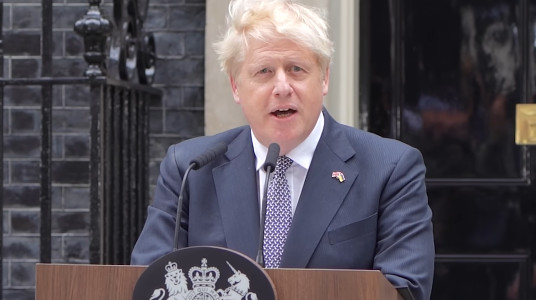
These things have consequences:
It risks increasing alienation from politics. “First past the post” means there are many parts of the country where people feel their vote doesn’t matter. The Tories have found a way to make this much worse. Brexit might already be a consequence of this because of the people who voted Leave out of frustration at being ignored.
It pushes things to the extremes. Rishi Sunak and Liz Truss need to appeal only to their own party rather than connecting with the rest of the country. That’s particularly serious as there’s now more support for Brexit in the Conservative party than there in the country. EU-bashing and Brexit might help one of them get elected, but they are not in the national interest.
There’s a big contrast with Conservative MPs chose John Major to succeed Margaret Thatcher in 1990. My sense then was that Conservative MPs realised that Thatcher had lost the support of the country, which was likely to be reflected in the next General Election. Major was a much-needed correction. Johnson has also lost the support of the country, and his party are now doing their best to find someone worse.
Two models of leader
From a psychoanalytic angle is that we’re navigating something difficult, but mostly unconscious.
What we need is the sort of wise, mature and grounded leadership epitomised by Angela Merkel, earning people’s trust in a way that enables them to face difficult times.
But there’s also a pull to something much more primitive — to a leader who people imagine can “save us” by seeming to meet our unconscious needs, even if they bring those to the surface by stirring up people’s anxieties. They meet a need, both for the portion of the country that loves them and the portion that loves to hate them.
The Tory leadership election should worry people because lots of these elements are in play. It will surface someone extreme, with a mandate but no legitimacy, attractive (for opposite reasons) to the portion of society that loves them and the portion that loves to hate them. We’re getting a lesson on what enables authoritarian regimes to come to power.
There isn’t an easy solution, but naming the problem is a start.
One of the things we can do is to call out the Tory leadership election as “fake presidential”. If it leads to a snap election, we need to call that out as bare-faced opportunism, playing on the ability of “First Past the Post” and an election called at the Prime Minister’s whim to get a vote that lacks legitimacy.
We can also talk about the EU. The European project was born out of a desire to prevent a return to the authoritarianism that caused so much suffering in the first half of the twentieth century. If there were already things in the UK pulling in that direction, then they will have shown as a not-entirely-rational belief that there was a “need” to get out of the EU. Leaving has taken the brakes off. It’s time to speak about the way Brexit has set in motion a chain of events undermining our democracy.
It’s also time to remind Tories of some words of wisdom from their most famous leader, Winston Churchill, that an MP’s loyalty should be first to the country, then to their constituents, and then to their party.
